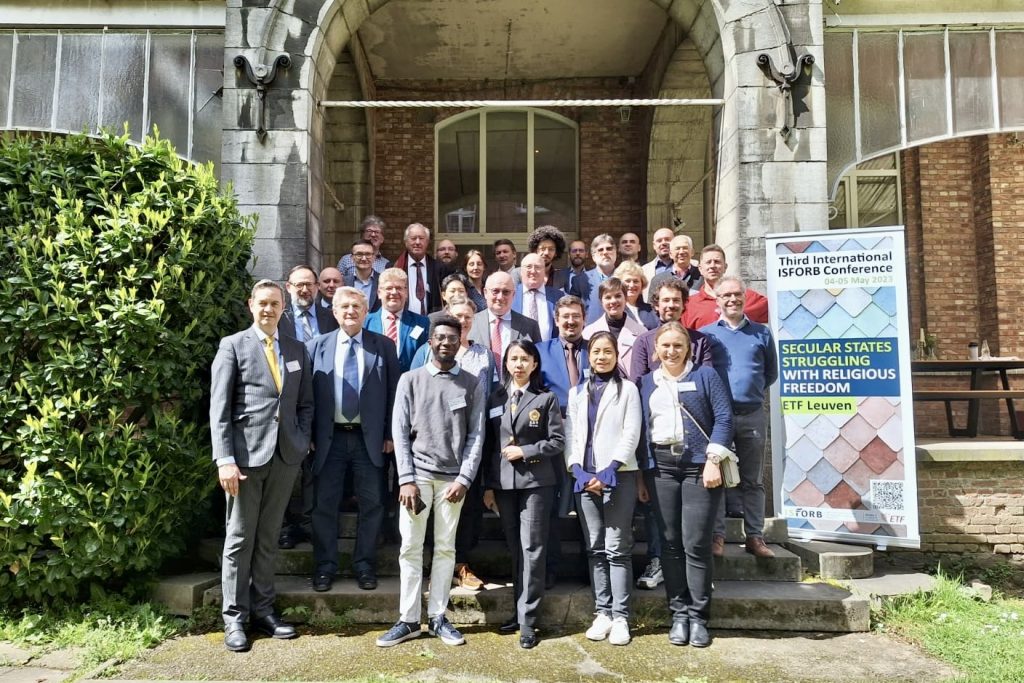
On May 4 and May 5, the Institute for the study of Freedom of Religion or Belief (ISFORB), organised a conference on “Secular states Struggling with Religious Freedom.” Prof Dr Christof Sauer and Arie de Pater represented IIRF at the conference, held at the Evangelical Theological Faculty in Leuven, Belgium.
The almost forty participants attended three plenary lectures. Further, they could choose from a diverse pallet of small paper presentations. Throughout the days, there was ample time for networking and discussions about the lectures and presentations which added value to the conference.
Based on data of the Religion and State project, Prof Dr Jonathan Fox from Bar Ilan University (Ramat Gan, Israel) assessed the religious freedom situation in several European countries. There definitely is no room for complacency. More secularism does not necessarily equal more religious freedom. Secular states often feel the need to regulate religious expressions and not always in a neutral fashion.
Prof Dr Johan Temmerman of the Free University in Brussels zoomed in on the conceptual challenges of religious freedom to secular state politics and jurisdiction. Especially in a time of increasing polarisation, interpretation of Freedom of Religion or Belief (FoRB) and its boundaries is not an easy task. The legal system is not immune to these challenges as is shown by a variety in rulings of the courts. Human rights can provide a new overarching commonality to our societies. State neutrality in respecting and protecting these rights is key.
Visiting professor Dr Archil Metreveli from Georgia stressed the importance of self-determination of religion or belief and signalled an evolution in the definition of religious manifestations. Over time, the definition of what is a protected manifestation of religious freedom became more individualistic.
Small paper presentations addressed various challenges to neutrality of the state like missionary activities, integral mission, sects and cults, COVID, the influence of prophets on elections etc. Several times, the tension between FoRB as an individual human right and the collective aspect of it came up. That tension won’t be solved shortly and will come back in future academic publications and conferences on FoRB.